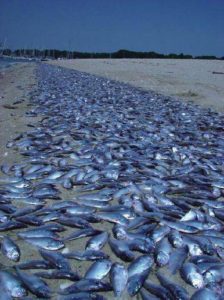 Last Saturday, August 19, 2017, South China Morning Post newspaper published an interesting article in its “Insight” section. It said that global warming may have a direct effect on behaviours of certain countries that lead to civil wars, rebellious acts and unreasonable killings. Complete with statistical evidences, it correlates climate change as one of the biggest factors why we have a hotter and more violent Earth.
Last Saturday, August 19, 2017, South China Morning Post newspaper published an interesting article in its “Insight” section. It said that global warming may have a direct effect on behaviours of certain countries that lead to civil wars, rebellious acts and unreasonable killings. Complete with statistical evidences, it correlates climate change as one of the biggest factors why we have a hotter and more violent Earth.
Working under the sun as a parade dancer made me so good in reading the Hong Kong Observatory Weather Forecast. Inaccuracies happen but predictions about hot weathers are almost flawless. Yesterday, the highest temperature recorded was 37.7 degrees Celsius in Ta Kwu Ling, located northeast of Sheung Shui, almost near the China border. Chek Lap Kok where Hong Kong Disneyland Park is, Tung Chung and the Hong Kong International Airport was next at 37.5. So is Shek Kong, located near Kam tin where the Shek Kong Airfield is at. Here’s the complete list if you want to check your site but we all felt almost melting yesterday!
Climate change is no longer a long-term issue, but a clear and present danger…. A hottest and more violent Earth is not fake news.
Today, as per prediction, the highest temperature expected is around 34 degrees Celsius. Although humidity plays a great role too and not just the extreme heat from the sun, let’s read this article by Andrew Sheng:
AT BOILING POINT
Andrew Sheng says extreme weather, migration and violence triggered by climate change are threatening us all.
What happened in Charlottesville, US, showed the temperatures and tempers are flaring in this long, hot summer. Is the Arab spring spreading worldwide due to global warming? The Arab spring broke out in 2011 with a wave of protests in countries including Oman, Yemen, Egypt, Syria and Morocco. This was hailed as the outbreak of democracy against authoritarian regimes, but what went unnoticed were the underlying causes of three interconnected factors – growing your unemployment from rapid population growth, the inability of existing governance structures to deal with growing social stresses, and the catalyst for social breakdown – climate change.
From February to august 2010, a large-scale drought and famine occurred in Africa’s Sahel region, the belt south of the Saharan Desert stretching from Senegal, Northern Nigeria and Mali to Sudan. The drought killed an estimated 260,000 people and caused migration northwards to North Africa.
Indeed, before the fall of Libyan leader Muammar Gaddafi in late 2011, the EU paid Libya €50 million (HK$459 million) in October 2010 to stop African migrants passing into Europe. From 2006 to 2011, Syria suffered drought and famine over 60 percent of its land area, causing massive crop failure and loss of herds.
In February this year, the UN declared another famine in South Sudan, with famine risks in Nigeria, Somalia, and Yemen. The famine in Yemen is already threatening 7 million people.
Last year was the hottest since records began to be kept in 1880, and 16 of the 17 hottest years have occurred since 2000. Indeed, by mid-year, 2017 may be shaping up to be the second-hottest year ever.
Increasing scientific evidence shows this continual rise in temperature will lead to more cyclones, and more unpredictable weather changes.
The US National Intelligence Council’s Global Trends report in January argued that global tensions will rise in the coming 5 years from 5 key stresses: economic, political, social, geopolitical, and environmental. The economic stress comes from slowing global growth, creating less resources to deal with the huge welfare and social gaps that shape politics. Political stress is rising because failing governments don’t have the capacity to address the challenges they face. This is particularly evident in the Middle East and North Africa, the most water-stress region in the world.
The report argues that “societal confrontation and polarisation – often rooted in religion, traditional, culture, or opposition to homogenising globalisation – will become more prominent in a world of ever improving communications”. Improved communications have not only enabled militant extremists and terrorist groups to have a transnational presence, but also infectious diseases to spread faster.
Geopolitical stress has arisen because of growing inter-state rivalry for power and resources.
Finally, environmental stress is moving centerstage as global warming generates more freakish storms, melts ice and makes sea levels rise. This worsens the coping abilities of fragile governments, already weakened by corruption, social dissent and insufficient resources.
These 5 stresses are mutually reinforcing, as deterioration in one makes the others worse. For example, if the sea level rises, not only would food-producing zones, such as the Mekong Delta, be subjected to flooding, the increased salt content would also reduce rice production. It has already been claimed that greater ocean weight stresses on continental shelves may lead to more earthquakes and volcanic disruptions.
The costs of dealing with natural disasters are becoming serious. The economic damage caused to America by Hurricane Katrina in 2005 was estimated at US$250 billion, of which only US$35 billion was covered by insurance. According to the Economist, in the 12 months to April 2014, the Indian central and state governments spend US$92 billion in dealing with floods, droughts and other disasters. The Paris Agreement on climate change promised just US$100 billion a year to help developing countries reduce their carbon footprint. President Donald Trump’s decision to pull the US out of the agreement will not only further reduce these resources, but his policies of growth at the expense of the environment may also add to carbon emissions from the US, already a major contributor to global warming.
The Charlottesville protests over the dismantling of a civil war statue resulting in violence between white supremacists and other protesters suggest that long and hot summers are associated with violence.
According to a study by Berkeley and Princeton, researchers published in Science magazine, a global temperature rise of 2 degrees Celsius could increase the rate of intergroup conflicts, such as civil wars, by over 50 % in many parts of the world.
Another study by psychologists Courtney Plante and Craig A. Anderson this year suggested a high correlation between heat stress and aggression and violence. Children growing up in climate-stressed countries may become more antisocial, from under-nourishment due to food and water shortages. The other impact is ecomigration-driven conflict. The illegal migration of over 15 million Bangladeshis into India, according to a Carnegie India 2016 study, created social tension along border areas.
Europe today faces more than 1 million annual migrants if the water-stressed regions of the Middle East and North Africa suffer further deterioration in food, water and security. The dilemma for Europe is not just about how to police its borders, but how to deal with climate change stresses in its neighbours, so that the ecomigration pressure is lessened. No one has quantified how much such investments will cost.
Climate change is no longer a long-term issue, but a clear and present danger. Each of us has to take responsibility for it, because it is collective human excessive consumption that is changing our eco-system. A hotter and more violent Earth is not fake news. That is why “earth First” comes before “America First” or “individuals first”. Hotter climates will need cooler heads than Trump’s to think through what we should be doing to deal with climate change.
Andrew Sheng writes on global issues from an Asian perspective. This article was originally published at South China Morning Post newspaper dated August 19, 2017, Saturday. I was looking for ways to share this from their website. As an old soul, I am subscribed to the kind of newspaper that gets printed out and not in the e-paper style. And this is the only way I could share this to you.
What are your thoughts on this? Do you agree or disagree? Is this how the earth is going to end? Global warming had started. And wasn’t it predicted that earth is going to burn from its core anyway? But don’t worry, it will be raining for a few days in Hong Kong. I believe from tomorrow until at least August 30 as I read in the Hong Kong Observatory App.

